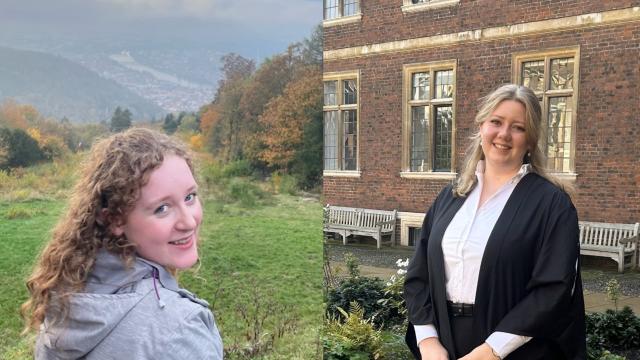
The Archive is currently undertaking a project to index the correspondence of George Elwin Corrie from his time as Tutor at St. Catharine's College in the early 19th century. Corrie came up to St. Catharine's in 1813. He was awarded his BA in 1817, and in the same year he became a Fellow of the College. He was appointed Norrisian Professor of Divinity in 1838, a position he would hold for 16 years. He was elected Master of Jesus College in 1849 and died in 1885.
The correspondence received by G. E. Corrie as Senior Tutor of St. Catharine's College covers the period 1826-1843. Volumes 1-9, covering the period 1826-1835 can be searched online via the Janus website. For each letter you will find the name of the writer, their address if given in the letter, a summary of the contents and a date.

Reference: T/3/1/9/98
This is an example of one of the letters in volume 9 from 1835, the most recent volume to be indexed. It was sent to Corrie from Francis Burton Danby, who although originally was admitted to St. John's College, matriculated at St. Catharine's in 1832 and went on to be appointed Library Keeper at the College in 1835. He was latterly Chaplain of the County Gaol, Kendal, Westmorland, and of the Lunatic Asylum at Lancaster.
In the letter he talks about the work he has been doing, namely adding class marks to books. He notes that he has run out of letters and requests more alphabets be printed in the summer. He goes on to talk about alum in the paste used by the bookbinder, and how its use may prevent an attack of worms. The College book collection had clearly been suffering from worm attacks in this period as Danby mentions several books that have been damaged! As well as preventing worms, Danby requests that blinds be put up on the windows as the sunlight is also damaging the books.
The collection of letters provide an insight into the worries and concerns of students, their families and other members of the College over a 17 year period. Many correspondents crop up several times allowing their activities to be tracked over a long period of time. The workings of the College in the early 1800s can also be studied using the letters. Indexes of the later volumes will be published as they are completed.


